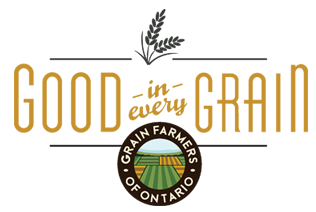Five things farmers do in the winter

It is no secret that the two busiest times of the year for grain farmers are in the spring for planting and in the fall for harvesting. Between these two seasons, farmers are busy taking care of their grain crops, making sure that they grow healthy and strong. But what happens after harvesting season? What happens before planting season? What do farmers do in the winter?
This question may look different from farm to farm and farmer to farmer, but the winter provides three to four months for farmers to get lots done. Let’s take a look at five different things that you may see Ontario grain farmers doing in the winter!
Maintenance and repairs
Harvest season is often non-stop until all the work is completed. Farmers strive to get crops harvested off the fields in the timeliest manner possible. This does not always leave much time for keeping up on maintenance and repairs of their tractors, combines, and other pieces of equipment. Often, farmers will perform an effective but quick fix to get back to work as soon as possible. The winter months provide a great opportunity to do some repairs that may be more time-consuming.
The winter is also a good time for general maintenance of machinery and equipment. Keeping up with maintenance is key to ensuring that the equipment is ready to go for the next season. Just like a vehicle on the road, the consistent maintenance that is done on them, the longer they will last, and the better they will work. This includes oil changes, software updates, and the simple task of a deep clean! Some farmers with a background in mechanics or engineering may also take the winter months to add some innovative upgrades/redesigns to their equipment to make it more sustainable, efficient, or versatile.
Planning
Grain farmers are always looking ahead to the next season and what that is going to look like. Winter is when farmers will continue and finalize their plans for the upcoming planting season. A variety of things need to be planned ahead of time so the planting season can go smoothly.
Things like deciding which fields will have which grains planted, helps the farmer determine how much seed they will need. Once they have totalled how many acres they will be growing of each grain, they can start to purchase or pre-order their seed. Farmers generally buy an excess of what they may need for each field; this ensures that there are no issues during planting season as far as having sufficient seed goes. Other choices, like their pest management plan or fertilizer strategies, will also be weighed this season to start the process of buying and/or ordering the supplies needed for the coming year. This is figured out through soil tests and calculations to only use the right amounts of seed, fertilizers, and pesticides. Farmers use data from not only the previous season but also past seasons to make the best decisions for their farm!
Planning also includes meeting with their accountants, bank managers, grain marketers and agronomists to make decisions for the upcoming year for their farm business.
Sell grain
When it comes to what farmers do with their harvested grains, there are a variety of options or situations that you may see. Some farmers enter into a contract with a buyer before they harvest the grain and deliver after harvest, some sell it during harvest, and some store it after harvest to sell later. Many farmers may do a combination of these things depending on what the grain markets look like. Farmers get paid based on each tonne sold, and the price for these tonnes are different for each grain and vary throughout the year. Prices change daily, and farmers will keep a close eye on the markets to determine when to sell their harvested grain tonnes.
Farmers who decide to store their grain to sell after harvest may spend their winter months keeping in contact with a grain merchandiser who will broker the sale.
They have to consider things such as selling price and transportation costs. Selling grain can sometimes be risky as prices are always changing! Ontario grain farmers sell their grains for many different uses, such as feed for livestock, seed to be re-distributed and planted, or to be made into food or household items.
Grain transportation
Many Ontario grain farmers have commercial truck and trailer licenses and can haul their own grain. While transport trucks are used in the busy season of harvest, they are also important in the off-season. This goes along well with the previous point of selling grain!
Many farmers use winter as a great time to move and haul grain from their own storage to elevator sites or where it is being sold. Sometimes, farmers have more grain than they do storage, so it needs to be moved around to other storage locations to be kept dry!
Vacation
Just like you or I, farmers go on vacation, too! While they may have more limited timelines when they are able to take a break, you will often see many Ontario grain farmers take time off in the new year. January and February are times for farmers to not only catch up on some work but also have some rest and relaxation. Whether it is a quiet week at home, flying somewhere for an adventure, or to visit family, many farmers will slow down in the winter for a much-needed break!



